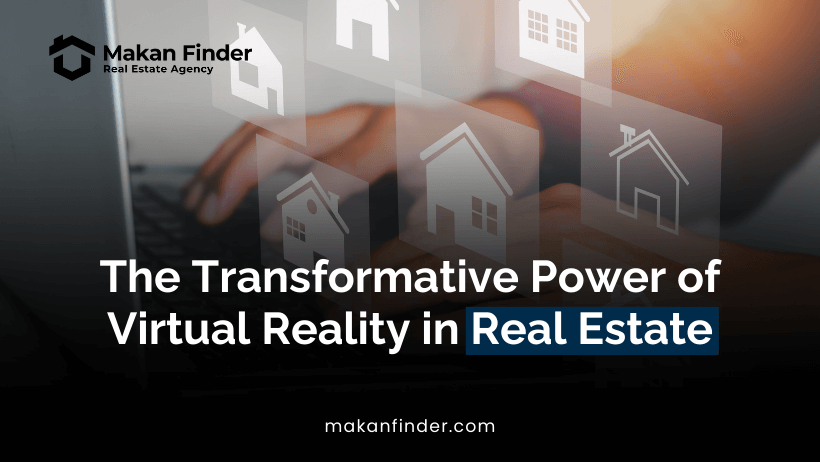Virtual Reality in Real Estate
Many people underestimate the profound influence of technology on our daily lives. The continuous advancements in digital technology have revolutionized and optimized numerous business operations that were once arduous and expensive. The real estate industry, in particular, has experienced significant benefits from technological advancements, including groundbreaking innovations in virtual and augmented reality. Among these, virtual reality has emerged as a game-changer, revolutionizing the home-buying process for both clients and agents. This comprehensive guide delves into the transformative power of virtual reality and its seamless integration with diverse digital platforms, propelling the real estate industry into a new era.
Unleashing the Potential of Virtual Reality
Virtual reality (VR) is a groundbreaking technology that immerses users in artificial realities separate from the real world. Utilized in industries like movies, gaming, and architecture, VR creates immersive digital experiences that captivate the senses. In the realm of real estate, VR walkthroughs have revolutionized the way properties are showcased, allowing potential buyers to explore and visualize designs before they are physically built. This technology offers affordability, reliability, and a level of detail that surpasses traditional methods. By embracing VR, real estate professionals gain a competitive edge in an evolving industry, delivering unparalleled experiences to clients. It’s a transformative tool that enhances visualization, enabling architects and designers to bring their visions to life with remarkable realism. The immersive nature of VR unlocks new dimensions of understanding and engagement, allowing buyers to make informed decisions and fostering excitement for future projects. Embracing VR is a strategic move towards staying ahead of the curve and embracing the future of real estate marketing. As VR continues to evolve and become more accessible, its impact on the industry is set to grow exponentially, making it an indispensable tool for success.
How Virtual Reality is Being Used in Real Estate
Virtual reality (VR) has become a game-changer in real estate marketing, allowing properties to be showcased and interacted with in a virtual environment. Through VR headsets, both buyers and sellers can experience immersive 3D virtual tours, revolutionizing the way skilled real estate agents promote properties. Agencies can leverage VR to captivate customers and reduce the costs associated with physical property visits. By utilizing VR headsets, agencies can showcase luxurious apartments, bungalows, land, and premium houses to potential buyers, offering an immersive experience that surpasses traditional methods.
1. VR Solutions for Realtors
Virtual reality (VR) has become a game-changer in real estate marketing, allowing properties to be showcased and interacted with in a virtual environment. Through VR headsets, both buyers and sellers can experience immersive 3D virtual tours, revolutionizing the way skilled real estate agents promote properties.
2. Staging and Virtual Visualization
With VR real estate, the challenge of marketing properties before they are constructed is overcome. Through 3D visualization and virtual tours, real estate agencies can showcase properties, both interior and exterior, even before physical construction takes place.
3. V-Commerce
VR offers customizable tours and walkthroughs, catering to specific customer preferences. Visual learners can focus on lighting and interior design, while those who prefer numbers can access detailed facts and measurements. Customers can also customize the virtual environment by adding furniture, changing layouts, and exploring interior design options.
4. Virtual Instructions for Tenants
VR solutions facilitate efficient communication between landlords and tenants through 3D virtual tours. This is particularly helpful for short-term vacation rentals, eliminating the need for frequent in-person interactions.
5. Architectural Visualization
Virtual reality enables potential buyers to visualize their desired properties, eliminating the need for physical showrooms. Architectural visualization aids designers, architects, and business owners, allowing them to navigate social distancing trends and collaborate remotely without direct interactions.
In summary, virtual reality technology has transformed property presentations, enabling real estate professionals to create immersive experiences for buyers and sellers. VR offers flexibility, customization, and efficient communication, enhancing the real estate industry in the digital age.
Benefits of Virtual Reality in Real Estate
While you may already be aware of the practical applications of virtual reality (VR) in the real estate industry, you might still wonder if it’s truly worth it. The answer is a resounding yes. To further emphasize this point, here are the key advantages that VR technology offers to real estate agents:
1. Time-Saving
VR solutions revolutionize the way clients and realtors spend their time. Immersive three-dimensional tours eliminate the need for physical travel, enabling clients to effortlessly experience properties by simply wearing VR headsets. As VR devices become more accessible, clients can conveniently take virtual property tours from the comfort of their homes.
2. Emotional Connections
Virtual tours of houses and apartments allow clients to visualize properties on their own terms, fostering a deeper emotional connection. Unlike rushed traditional visits, VR home tours provide focused attention to details and create an immersive experience that leaves a lasting impression.
3. Global Reach:
Virtual reality expands the reach of real estate agents, significantly reducing the time spent on individual clients. Virtual tours eliminate geographical constraints, enabling realtors to showcase properties to long-distance buyers. This opens up opportunities to work with more clients and process a greater number of inquiries.
4. Cost Efficiency:
Developing feature-rich 3D virtual tours may seem expensive initially, but it pales in comparison to the costs of traditional real estate marketing. VR leverages the power of 360-degree videos and computer graphics, eliminating the need for extensive staging and high-quality print materials. The result is substantial cost savings.
5. Sense of Ownership:
VR home tours empower clients to virtually explore properties at their own pace, fostering a sense of personal connection and ownership. Interactive add-ons, such as mortgage calculators, information about similar properties, and neighborhood descriptions, enhance the customer experience and provide comprehensive property information upfront.
Wrapping Up
In conclusion, virtual reality technology is making significant strides in the real estate industry, with larger agencies leading the way in providing virtual tours. However, more real estate agents are expected to adopt VR to enhance their work processes and efficiency. While basic virtual home tours like 360-degree videos and photos are accessible to any realtor, there are numerous companies available to help create more immersive and sophisticated VR experiences. Virtual reality is poised to revolutionize various industries, and staying informed about its implementation and other emerging technologies is crucial. Subscribe to our newsletter to stay up-to-date on the latest developments in business applications of VR and other cutting-edge technologies.



